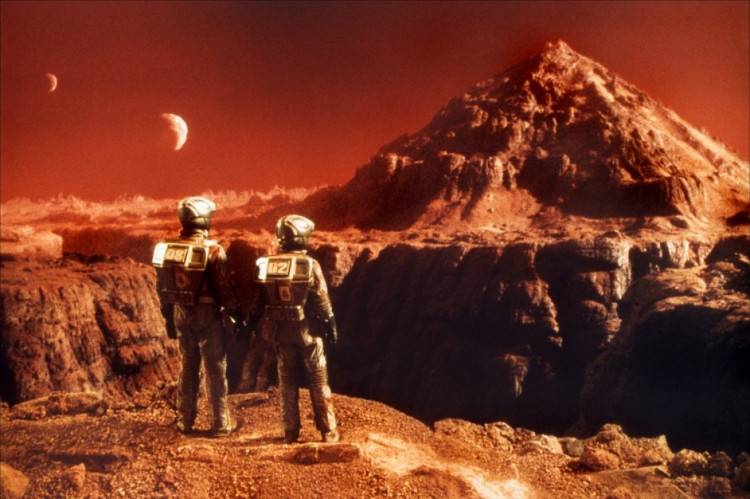Traveling to Mars can cause memory loss
Astronauts traveling to Mars face the risk of long-term damage to the brain and even loss of memory due to exposure to galactic cosmic rays.
According to a new study published on October 10, to discover a phenomenon called "space brain , " researchers from the University of California experimented with rodents exposed to charged particles. High energy - oxygen particles and completely ionized titanium - at the Space Radiation Laboratory at Brookhaven National Laboratory in New York.
These particles are similar to particles found in galactic cosmic rays that will "attack" astronauts during space travel. Six months after exposure, the researchers still found severe brain inflammation and nerve cell damage in experimental animals. Photographs show that the brain's neural network has been damaged and caused disruption in signaling between brain cells.

Exposure to radiation affects the mechanism of "quenching fear" in humans.
In addition, the team led by Charles Limoli, a radiologist at the University of California, also found that exposure to radiation affects the mechanism of "quenching fear" in humans, An active process in which the brain blocks unpleasant and stressful associations.
Mr. Limoli said that this is an ominous information for astronauts involved in trips lasting 2-3 years to Mars. The space environment poses a danger to astronauts.
Exposure to high-energy charged particles leads to the risk of long-term neurological complications. The consequences can be neurological impairments such as memory loss, anxiety, and depression. In many cases, bad effects can last for a lifetime.
Spacecraft to Mars is often designed with shields for astronauts' rest activities. However, high-energy charged particles can still pass through these shields.
Research published in the journal Science Report is part of the Human Research Program of the US Aerospace Agency (NASA).
- Loss of teeth causes memory impairment
- Why do mothers reduce memory after childbirth?
- Causes of memory loss
- What is temporary dementia?
- Ways to protect memory are gradually decreasing
- Hearing loss weakens memory
- Social network abuse may cause temporary memory loss
- Memory process of the brain and methods to improve memory!
- People with memory only last 90 minutes
- Find out how to recover memory
- Exercise increases memory
- Drinking alcohol modulates the risk of memory loss
 Van Allen's belt and evidence that the Apollo 11 mission to the Moon was myth
Van Allen's belt and evidence that the Apollo 11 mission to the Moon was myth The levels of civilization in the universe (Kardashev scale)
The levels of civilization in the universe (Kardashev scale) Today Mars, the sun and the Earth are aligned
Today Mars, the sun and the Earth are aligned The Amazon owner announced a secret plan to build a space base for thousands of people
The Amazon owner announced a secret plan to build a space base for thousands of people Does exercising our minds a lot help us burn excess calories?
Does exercising our minds a lot help us burn excess calories?  How did Egyptian mummies remove the brain from the body?
How did Egyptian mummies remove the brain from the body?  Shocking evidence that near-death experiences are real in people who have had cardiac arrest
Shocking evidence that near-death experiences are real in people who have had cardiac arrest  AI has been able to accurately reproduce more than 80% of images in the human brain.
AI has been able to accurately reproduce more than 80% of images in the human brain.  Neuralink tests controlling a robotic arm with thoughts
Neuralink tests controlling a robotic arm with thoughts  Elon Musk's ambition to merge humans with AI
Elon Musk's ambition to merge humans with AI 